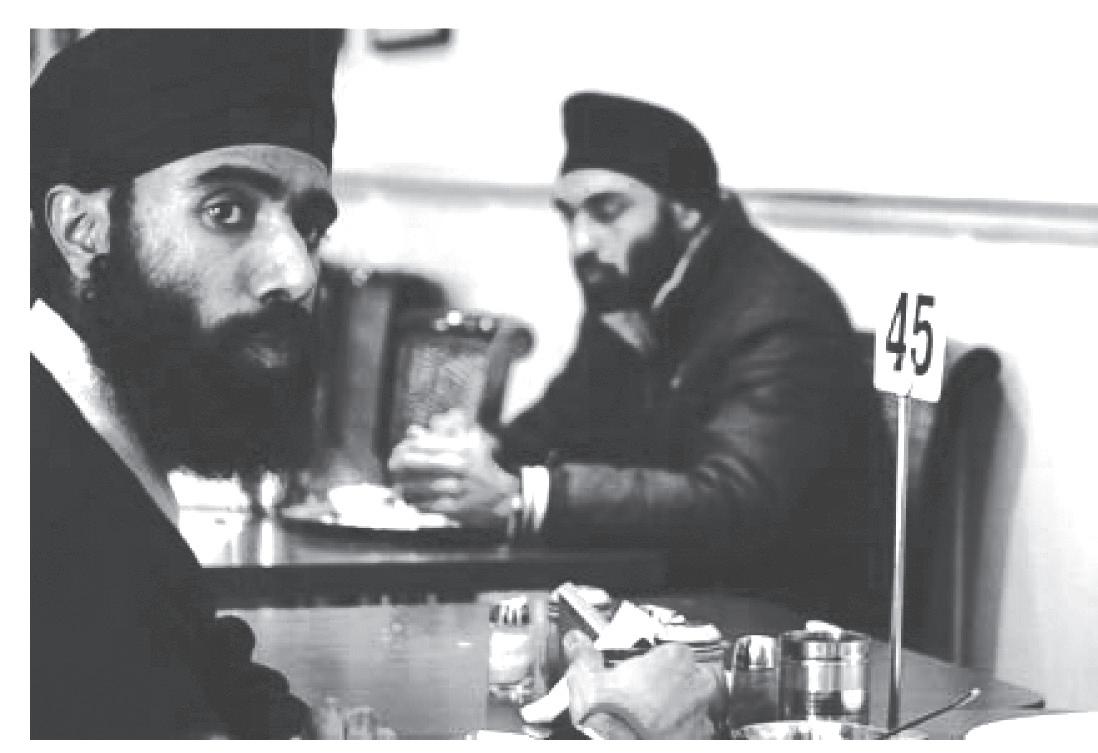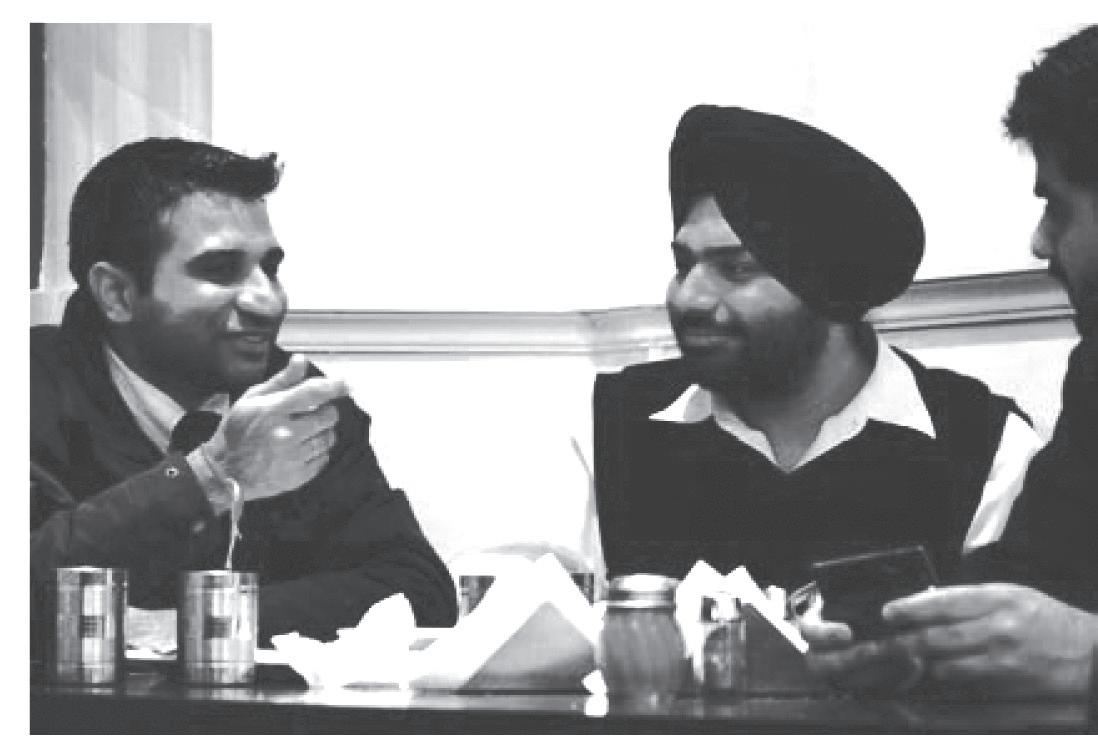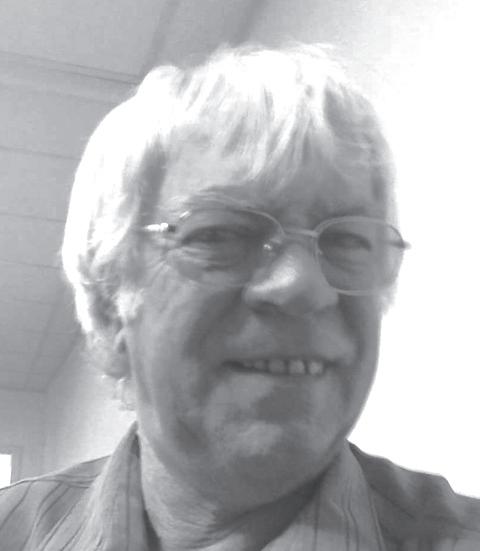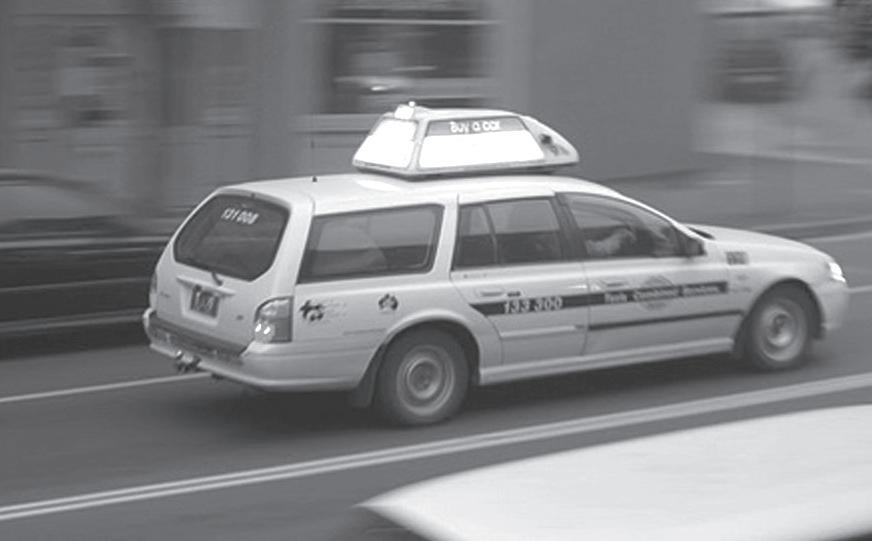
3 minute read
taxi drivers Taxiwallahs on film
from 2009-12 Melbourne
by Indian Link
Raahi raatan de… travellers of the night.
A short film looking at the Indian taxi driver subculture is about to be launched this month.
Written and directed by William Head, the film offers a glimpse into the late-night world of taxi drivers at the Red Pepper Indian restaurant in Bourke St, Melbourne.

The synopsis explains the film succinctly
In the dead of the lonely night, Melbourne’s Punjabi taxi drivers meet post-shift at the Red Pepper Indian restaurant. Outsiders in a foreign land, they find solidarity and companionship by sharing the food, language, music and culture of their homeland. Night Fare follows one driver in from the cold night and into the bustle of this early-morning scene. What emerges is an impression of a lively and unknown pocket of a new culture establishing itself in the heart of the sleeping metropolis.
But the film is more than just a film. Night Fare is also an online documentary website. It includes video interviews with taxi drivers talking about life in Australia and also with Red Pepper staff. It has behind the scenes slideshows, information on the history and background of the restaurant and links to other news sources on the net. The song Dollar (by Harmeet Sing & Peter Joseph Head), which was commissioned for the film, is also available as a free download.
Check out the site at www.nightfare.com.au new regulations will help in improving the industry. In Victoria some of these competency tests are already in place so the focus should be on training instead. The public expectation from the industry has increased hence training courses should gear towards fulfilling customer service standards.
The film was made as part of the coursework requirements of the graduate diploma of Documentary Production at the Victorian College of the Arts and Music, University of Melbourne.
Night Fare will be screening at Australian Centre for Moving Image (ACMI) in Melbourne on Thursday the 10th, Friday the 18th and Saturday the 19th of December.
ALAN COCKS Principal, Australian College of Vocational Sciences, Sydney

As far as local geography is concerned, I think it is absolutely imperative that taxi drivers have a good knowledge. We teach our trainees about major routes and how to get from suburb to suburb. There are some 300 places of interest – hospitals, restaurants, stadiums etc that they have to know the location of. Of course, no one can know every location in Sydney, but we work to ensure that they know as many of the major ones as possible. We also go through the street directory in depth. People say you can just work with sat-nav, but you know, if someone jumps into your taxi in the CBD and you have to follow the general traffic, then you’ve got to know where to go. Also the sat-nav is a mechanical device - it can fail, or the charging cord might not work … so a good knowledge of the roads is essential. Our trainees undertake practice drives as part of the course, and we monitor the routes they take and the time and so forth.
As far as the new English language regulations are concerned, it’s been a bone of contention with me personally. While I fully agree that the drivers have to have good English skills, I think the AMES the seven required competencies… Look, I’ve been a taxi driver myself for 25 years – all you need to do is ascertain where the passenger wants to go, any particular way they wish to take, and when you get closer to the destination, which street, house number or whatever, and ask how the passenger will pay. You don’t really need much more than that.
A large number of our trainees come from the Indian sub-continent and their English is usually good. Yes, sometimes we get people whose English may be suspect and we warn them straight off that they may or may not pass, so that they can go and work on those skills. When they fail we give them remedial lessons on the aspects that they need more training. Overall, I’d say about 70% pass in the first go, about 95% in the second go. We’ve only had about half a dozen or so who couldn’t make it in the third go as well, and they haven’t come back. From the trainees themselves, no, we haven’t received any adverse feedback about the new regulations. If we do get lots of failures, then we’ll cast a second look at it all and take it to pieces if need be.
Alan Cocks: They’ve gone overboard with the language requirements
New National Standards for taxi drivers
Potential drivers will need to pass eight competency units before they receive their taxi license. These units are as follows: l Use of a taxi’s communications systems; l Skills and knowledge required to drive a taxi safely; l Ability to operate Wheelchair Accessible Taxis; l An understanding of occupation health and safety standards to be followed when operating a taxi; l An ability to identify and describe local major roads, services and attractions; l Completion of a workplace induction for the transport industry; l Skills and knowledge to operate a taxi meter, calculate fares, handle payment transactions, and maintain accounting records; l Provision of customer service to taxi passengers. l As well as these new National Taxi Driver Competency Units from 1 July 2010 all new taxi drivers will need to pass an English language test.











